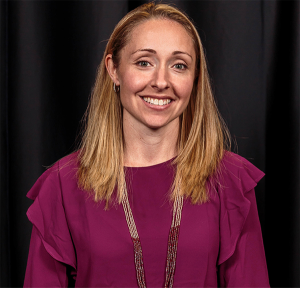By Alison Malmon
 Student mental health is a growing issue on college and university campuses. National sources confirm a high and rising prevalence of depression, anxiety, and suicidality among students, and college presidents recently agreed that faculty on their campus are spending more time addressing student mental health concerns than three years ago.1
Student mental health is a growing issue on college and university campuses. National sources confirm a high and rising prevalence of depression, anxiety, and suicidality among students, and college presidents recently agreed that faculty on their campus are spending more time addressing student mental health concerns than three years ago.1
While researchers are still examining potential contributing factors to this problem, the promising practices to address it are better known, and are reflected in Active Minds’ Healthy Campus criteria:
• Stronger campus policies.
• An evidence-based approach.
• A culture of support and care.
• Individuals in all corners of the campus community, particularly faculty, equipped and ready to support struggling students.
Our data show that, next to a friend or campus counseling center, students most want to talk to a faculty member or academic advisor when they are struggling. Yet, more than half of faculty we have surveyed feel only somewhat supported to recognize and help students who are struggling, and 22% do not feel supported at all.
In addition to providing faculty with better guidance in support of student well-being, Active Minds recognizes that a culture of wellness and mental health support is only achieved when faculty wellness and mental health supports are prioritized alongside those of students’. Faculty feel more empowered and prepared to support their students when they have had opportunities to focus on their own well-being and mental health.
Colleges and universities presented with Active Minds’ Healthy Campus Award are offering particularly innovative programs to support faculty well-being. For example:
• The University of South Carolina provides comprehensive faculty and staff wellness initiatives, inclusive of wellness coaching, prevention screenings, mindfulness and meditation workshops and space, and mental health counseling.
• Kent State University’s employee wellness offerings include a variety of physical activities, lunch and learns, free Fridays at the Recreation Center, cash incentives to reward positive health behaviors, health screenings, stress management coaching, a certain number of free mental health counseling sessions, and massage therapy.
• The University of Oregon’s Duck Nest Wellness Center provides faculty with skill-building opportunities for stress management, body-positive programming, nutrition information and promotion of health dietary choices both on- and off-campus, meditation and relaxation, yoga, aromatherapy, therapy dogs and mental well-being workshops.
• Lawrence University’s wellness initiatives focus on key interventions: tobacco cessation, stress intervention, nutrition, and challenges to increase physical activity. Their goal is to meet faculty where they are in their wellness journey by offering a variety of programs focused on the individual including our mind spa, massage program, personal training, and dietician.
Faculty seeking ways to make time for their own mental health and well-being can consider the following:
• It’s OK to not always be available. Take the time you need to re-charge and preserve your own creativity and autonomy.
• Say “no” and set boundaries when needed. Pause and reflect before responding to a request and discern when to say yes and when to say no. It is possible to say “no” in ways that still show care of others.
• Prioritize your own well-being. Take the time you need to eat nutritious foods, exercise, play, rest, reflect, stretch, and grow in your life.
• Take a 10-minute break every day. Take a break from your devices and experience nature and connect to the world beyond yourself and your work
We know most faculty members are not experts in wellness and mental health. They cannot (and should not) replace the role of the counseling center. However, in addition to setting an example of self-care, faculty members do play a critical role in helping struggling students day-to-day—often by simply showing them that they care.
In partnership with ACUE, Active Minds will provide continued practical, evidence-based strategies that faculty members may implement in “the everyday.” Through these strategies, faculty can contribute to the creation of caring campus communities that support students to thrive and to seek professional help when needed.
- American Council on Education. “College Student Mental Health and Well-being: A Survey of Presidents.” August 2019. https://bit.ly/35lAmvU.
